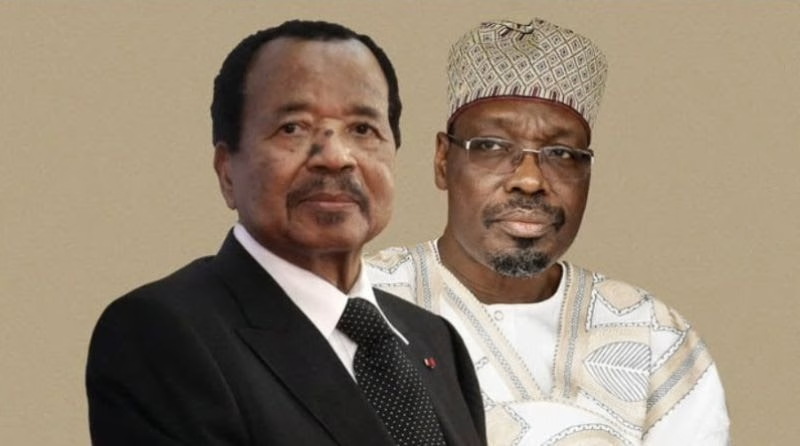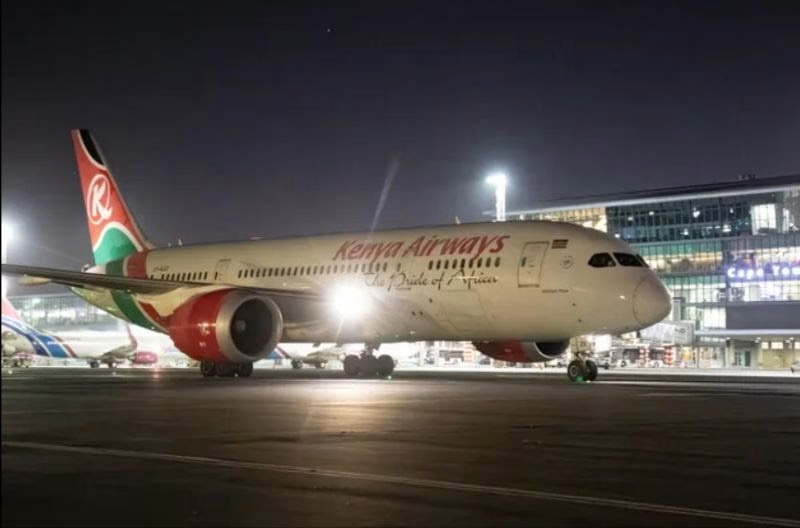Authorities Need to Investigate, Prosecute Grave Crimes Committed by All Sides
- Photo: Iyad Ag Ghaly, left, the leader of the Islamist armed group Ansar Dine, with the then-Burkinabe foreign minister, Djibrille Bassole, at the Kidal airport in northern Mali, August 7, 2012. © 2012 ROMARIC OLLO HIEN/AFP/Getty Images
The International Criminal Court’s (ICC) announcement of an arrest warrant for the leader of an armed group in Mali highlights the need for Malian authorities to seek justice for serious crimes committed by all warring parties, Human Rights Watch said today.
On June 21, 2024, a pretrial chamber of the ICC unsealed an arrest warrant against Iyad Ag Ghaly, also known as “Abou Fadl,” who was the head of Ansar Dine, an abusive Islamist armed group. The warrant, which was initially issued under seal in July 2017, states that Ag Ghaly is wanted on charges of war crimes, including sexual violence, and crimes against humanity committed in northern Mali between January 2012 and January 2013.
“Many Malians deserve to see those responsible for horrific abuses in their country held to account in fair and credible trials,” said Ilaria Allegrozzi, senior Sahel researcher at Human Rights Watch. “But for Iyad Ag Ghaly to be brought to justice, concerted efforts are needed to surrender him to the ICC.”
Ag Ghaly is currently the head of the Group for the Support of Islam and Muslims (Jama’at Nusrat al-Islam wa al-Muslimeen, JNIM), an umbrella coalition of Al-Qaeda-aligned groups that emerged in March 2017. He appeared in a video posted online in December 2023, announcing a new phase of “jihad” against the military juntas in the Sahel region and the Russia-backed Wagner Group, which has been assisting some of them. In November 2023, Mali’s judiciary announced an investigation into several ethnic separatists and Al-Qaeda-linked armed group leaders, including Ag Ghaly, for terrorism and money laundering. Ag Ghaly remains at large.
Human Rights Watch has extensively documented widespread abuses committed by Ansar Dine against civilians in northern Mali while enforcing their strict interpretation of Sharia, or Islamic law. These abuses included summary executions, beatings, floggings, and arbitrary arrests of those engaging in behavior decreed as haram (forbidden, in Arabic), including smoking, listening to music, and failing to attend daily prayers. An Islamic police called the Hisbah meted out the punishments for these “infractions,” often after summary “trials.”
Ansar Dine fighters also destroyed numerous religious shrines of cultural and religious importance, and claimed responsibility for an attack in Aguelhoc, in Mali’s Kidal region, in January 2012, where they summarily executed at least 150 captured Malian soldiers.
Human Rights Watch has also repeatedly documented serious violations by Malian security forces since 2012 across the country. These include summary executions, enforced disappearances, and torture of people in custody.
The Malian government has primary responsibility under international law for ensuring justice for the most serious crimes, but, despite the referral and cooperation with the ICC, Malian national authorities have made scant progress investigating, much less prosecuting, those responsible for the many grave offenses committed as part of the armed conflict in Mali since 2012, particularly by Malian government forces.
The current government has also sought to eliminate international scrutiny into the country’s human rights situation. In December 2023, the United Nations Multidimensional Integrated Stabilization Mission in Mali (MINUSMA) pulled out of the country at the request of Mali’s authorities, raising concerns about the protection of civilians and the monitoring of abuses. In January 2024, the government announced that Mali would leave the Economic Community of West African States (ECOWAS), which would deprive victims of gross human rights violations of the ability to seek justice through the ECOWAS Community Court of Justice.
The ICC has had an open investigation into the situation in Mali since 2013, following a referral by the government of Mali, a member state to the Rome statute. Two other cases involving Ansar Dine commanders were brought before the ICC. On September 27, 2016, the court sentenced Ahmad Al-Faqi Al-Mahdi, head of the Islamic police, to nine years in prison, after he pleaded guilty to participating in the destruction of religious and historic buildings in Timbuktu, northern Mali, in June and July 2012. In March 2018, Al-Hassan Ag Abdoul Aziz, also a senior member of the Islamic police, was surrendered to the ICC. His trial on charges of war crimes and crimes against humanity began in July 2020, and the court is expected to deliver its judgment today.
“The ICC’s arrest warrant for Ag Ghaly shows the need for the Malian government to do more to investigate and prosecute war crimes committed by all sides,” Allegrozzi said. “Malian authorities should work with independent experts to monitor human rights violations and ensure that those responsible are held to account.”











